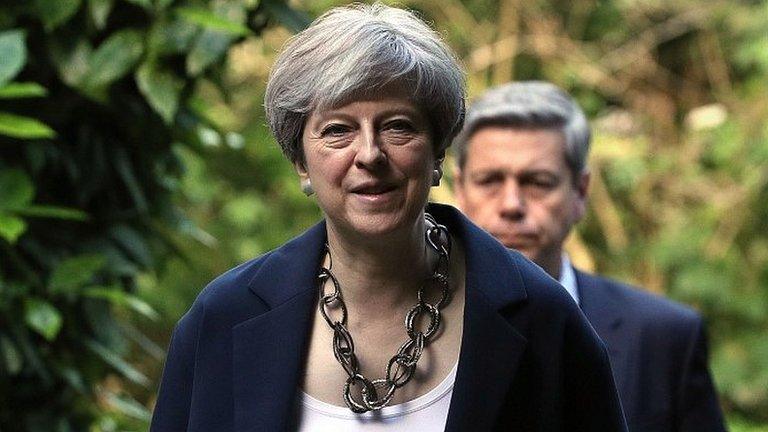Brexit deal: Government exploring extra DUP assurances, says Chancellor
- Published
- comments
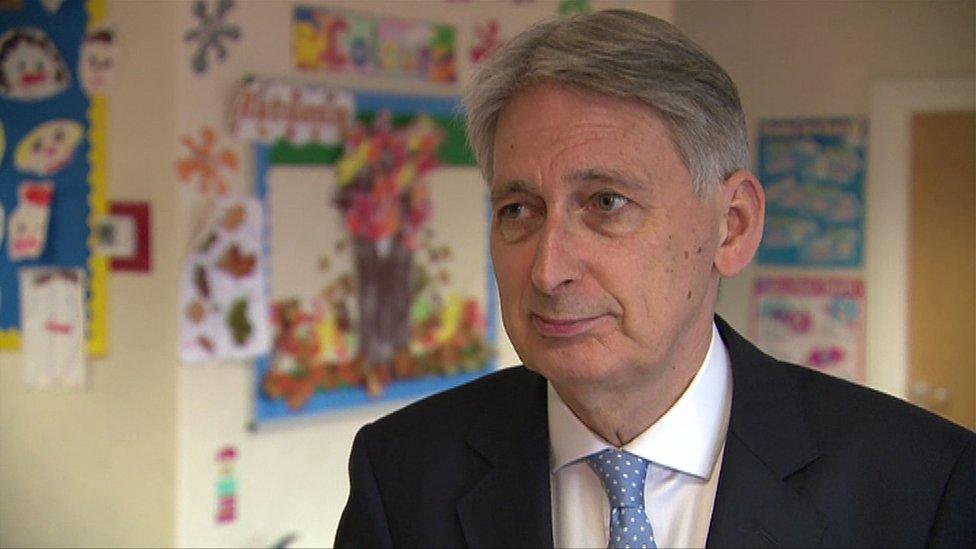
Chancellor Philip Hammond said he believes his party's confidence and supply deal with the DUP will stay intact
The government is looking at ways to provide extra assurances to the DUP over the Irish border backstop, Chancellor Phillip Hammond has said.
He was speaking during a visit to an integrated school in Moira, County Down.
Some MPs, including those in the DUP, have said they will not back the government's Brexit deal because of the backstop proposal.
It would see only NI stay aligned to some EU rules, if it came into effect.
Mr Hammond said the government has a number of choices through the "parliamentary process", which include extending the implementation period to avoid having to use the backstop.
The backstop is an insurance policy to ensure frictionless trade across the Irish border after Brexit, if no other solution can be found as part of a wider deal with the EU.
The DUP has repeatedly said it will not accept any extra checks only in Northern Ireland, and has vowed to vote against the deal in the Commons.
It has led to tension with the Conservative Party, and put the confidence and supply deal the parties share under huge strain.
The parties signed the pact in June 2017, with the DUP securing more than £1bn of extra funding for Northern Ireland, in exchange for its 10 MPs supporting the government on key votes in Parliament.
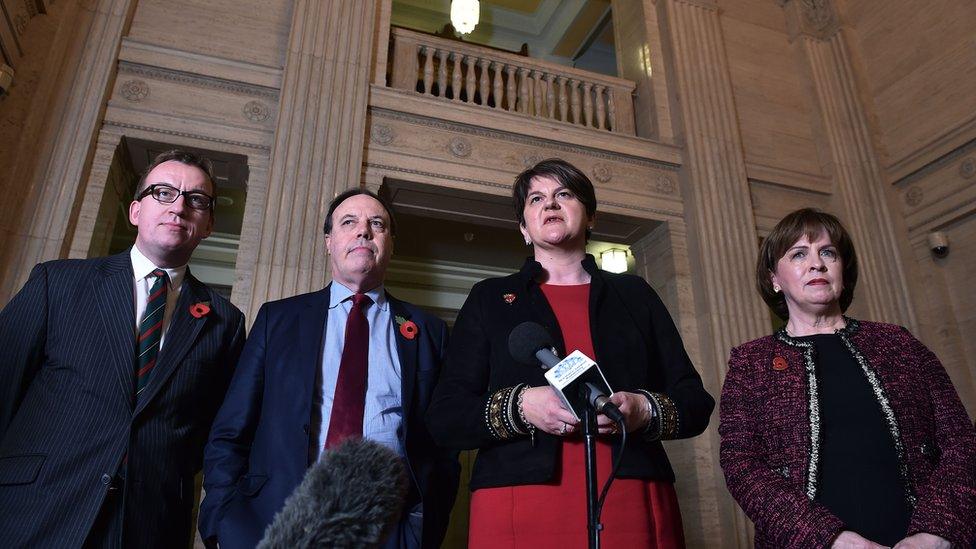
Senior DUP politicians pictured with party leader Arlene Foster at a press conference in Stormont's Great Hall
On Monday, the party abstained on budget votes, in a bid to warn Theresa May to scrap the backstop proposal.
But Mr Hammond told BBC News NI he believes his party's confidence and supply deal with the DUP will stay intact.
He is due to speak at the start of the DUP's annual conference on Friday evening, while leading Brexiteer Boris Johnson will speak to DUP members on Saturday - traditionally viewed as a more high-profile slot in annual party conferences.
DUP MP Sammy Wilson said Mr Hammond would be welcomed at his party's annual conference in Belfast, despite his party's differences with the government.
"I think the fact that we have brought Philip Hammond and Boris Johnson across knocks on the head the idea that some people have been putting around that we have closed our minds and our ears to listening to all sides of the argument," Mr Wilson said.
But Mr Wilson said it was "not our fault" if the media gave more prominence to Mr Johnson, and said it was apt that Mr Hammond would address an audience that will include many members of the business community.
'Immediate funding'
The Chancellor said the DUP and Conservatives "don't always agree on everything but I'm sure we'll sort it out, we are two parties that agree fundamentally on the importance of maintaining the union".
Asked if the prime minister could survive in office if parliament rejects her deal, the chancellor said now was a time to bring the country back together and "Theresa May is the right person do that".
During his visit, Mr Hammond also announced that funding of £66m is to be released, external by the Treasury so that 23 shared and integrated schools in Northern Ireland can continue with building (capital) projects.
The money is from a pot of £500m that was first approved in the Stormont House agreement in 2014 and re-affirmed in the Fresh Start Agreement in November 2015.
Earlier this year, BBC News NI revealed that unspent money totalling £91m for shared and integrated education from the agreements would be made available.
Mr Hammond then headed to an event led by the Federation of Small Businesses (FSB).
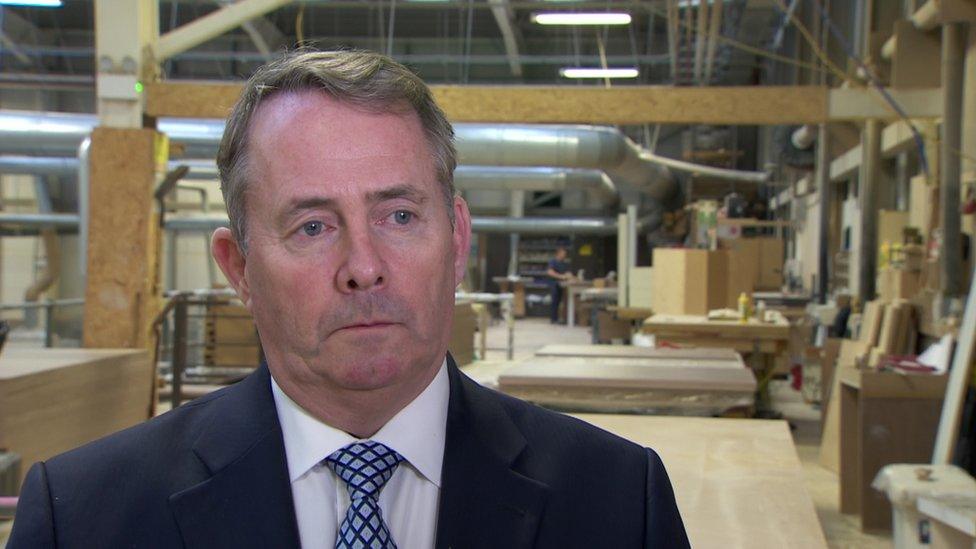
Liam Fox told BBC News NI the draft political declaration was hugely encouraging in terms of ensuring the Irish border backstop never needs to be used
Meanwhile his cabinet colleague, International Trade Secretary Liam Fox, has said language in the draft UK-EU political declaration, which refers to looking at technology to address the Irish border, is "encouraging".
He made the remarks during a visit to a business in Newry, County Down, on Friday.
Mr Fox, who backed leave in the referendum, said despite opposition to the draft withdrawal agreement, that "this is a bullet we have to bite".
Allow X content?
This article contains content provided by X. We ask for your permission before anything is loaded, as they may be using cookies and other technologies. You may want to read X’s cookie policy, external and privacy policy, external before accepting. To view this content choose ‘accept and continue’.
"People in parliament will have to take a decision on whether they are going to block the democratic decision of the public."
He said the government's aim was to ensure "we never get to the backstop", and that he hoped that issue would be addressed through the future relationship.
"The paper we published yesterday sets out a number of alternative arrangements to deal with the border, which is a big improvement on where we've been before".
'Building trust'
"It shows shows building trust and we can avoid ever getting to the backstop," added Mr Fox.
But he suggested Great Britain could have issues negotiating trade deals with new partners if the backstop arrangement came into effect.
The cabinet minister also did not rule out extending Article 50 if Parliament votes down the government's draft Brexit plan.
But he said: "We've always said we didn't want to extend Article 50 - we need to come to an agreement."
- Published20 November 2018
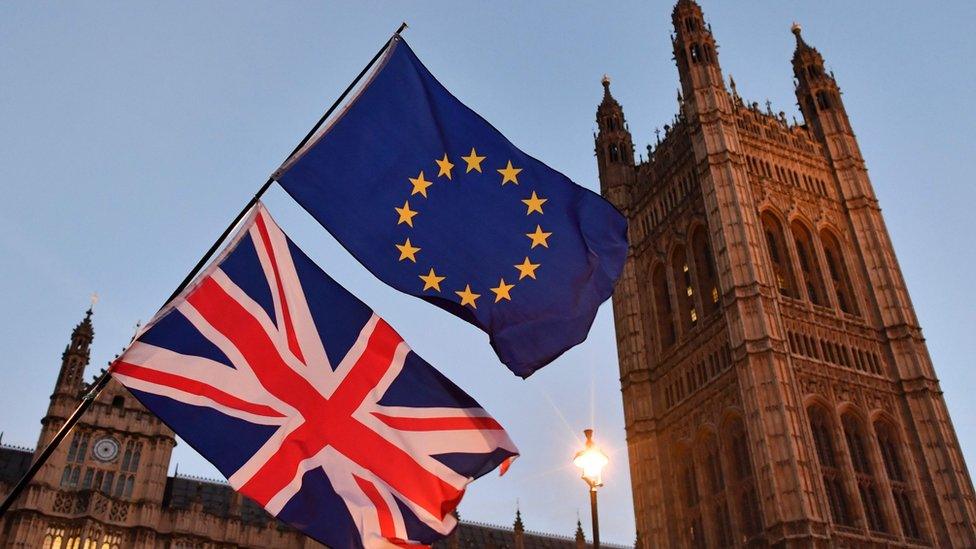
- Published20 November 2018
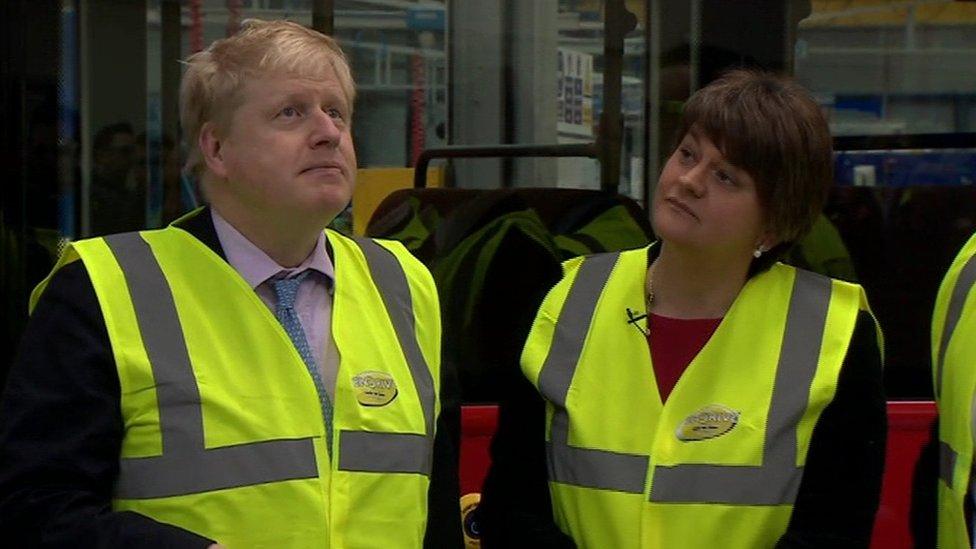
- Published19 November 2018
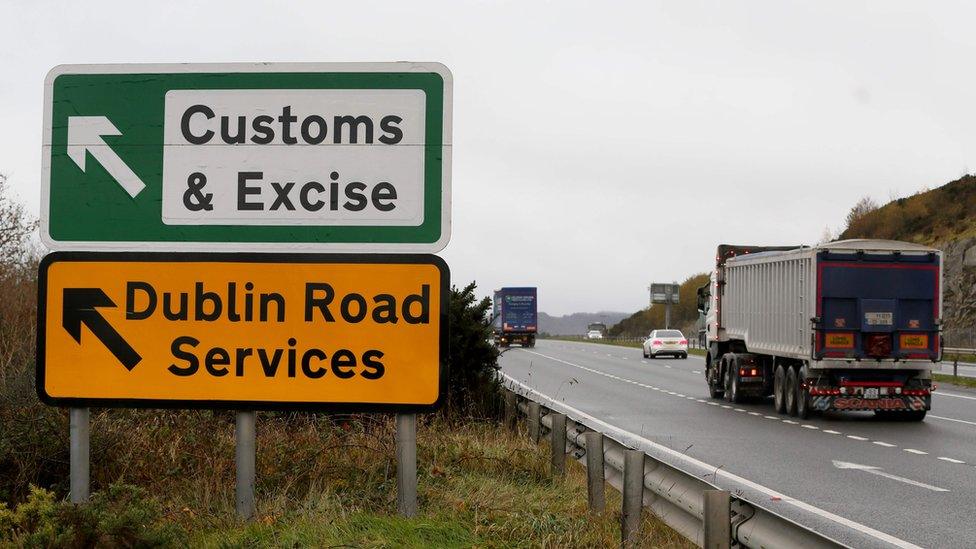
- Published20 November 2018
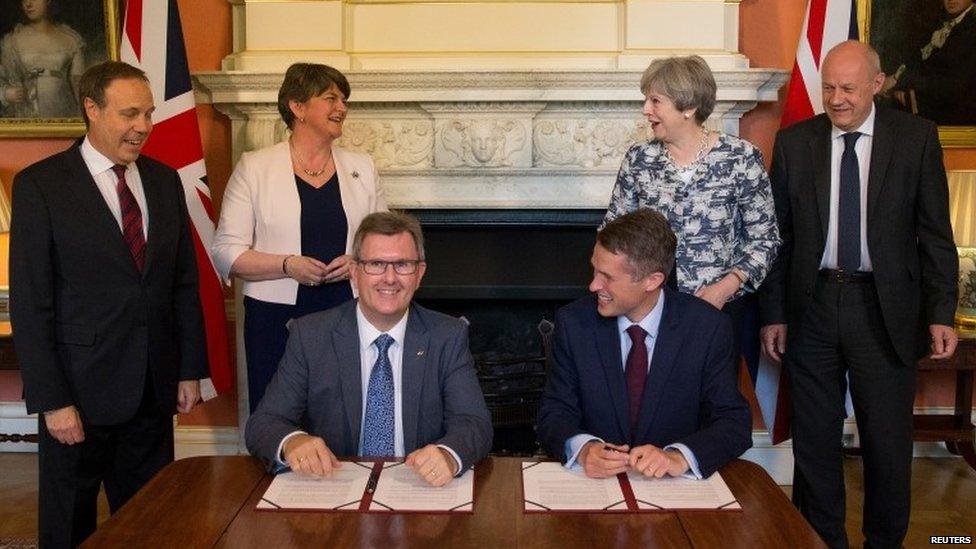
- Published26 June 2018

- Published26 June 2017
